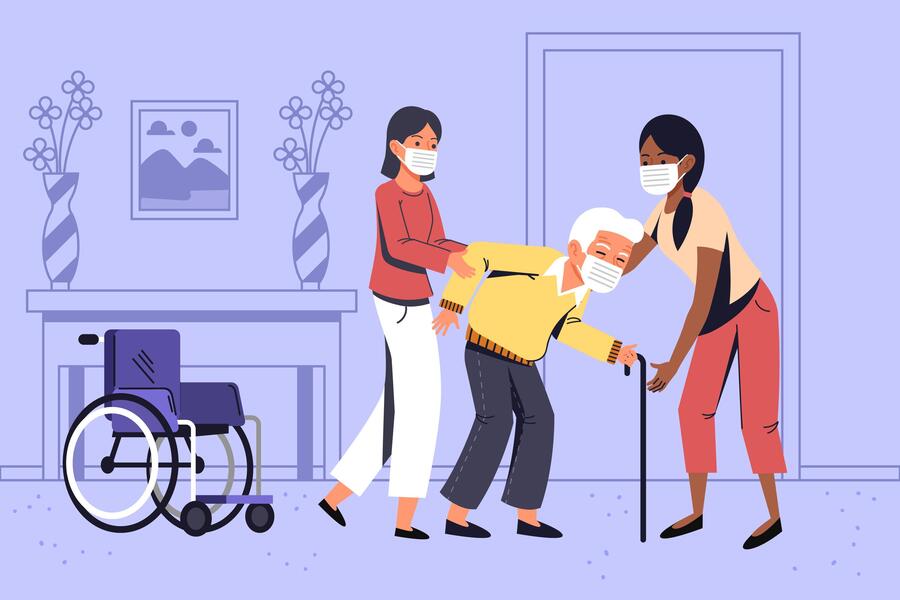Currently Empty: $0.00

Understanding Medical Oversight in Assisted Living Facilities
When a loved one moves into an assisted living facility, concerns about their medical care will naturally arise. A common concern is who will oversee their healthcare needs in the new setting. Unlike nursing homes, assisted living facilities typically do not have doctors on staff, or doctors making routine visits. In these circumstances, who ensures that residents receive proper medical attention? Below, we clarify some of the complexities of medical oversight in assisted living facilities.
The Role of Assisted Living Facility Staff
With doctors not present in most assisted living facilities, the day-to-day care of residents falls to caregivers and medication technicians. These individuals play an essential role in ensuring residents’ well-being, but their qualifications vary significantly from those of medical professionals. Caregivers and medication technicians often receive limited formal education and may have minimal on-the-job experience. High staff turnover exacerbates the problem. Understanding the capabilities and limitations of staff members is crucial in advocating for your loved one’s health and safety.
Care Continuity
While doctors aren’t usually provided on-site, a resident’s primary care physician will typically remain the same after they transition to an assisted living facility. This continuity allows them to stay under the care of a medical professional who is familiar with their health history and needs. However, it’s vital to take proactive steps to ensure this arrangement provides the necessary quality of care.
Recognizing Signs of Abuse or Neglect
Assisted living facilities are intended to provide a safe and supportive environment for elderly residents. Unfortunately, abuse and neglect can still occur. Vigilance is essential. Family members should be aware of the following warning signs:
Physical Signs
- Unexplained Injuries: Bruises, cuts, fractures, or welts with no clear cause or frequent recurrence
- Untreated Medical Conditions: Signs of neglected medical care, including infections, bedsores, or other preventable health issues
- Malnutrition or Dehydration: Sudden weight loss or signs of inadequate nutrition and hydration despite food and water availability
- Poor Hygiene: Unkempt personal appearance, soiled clothing or bedding, and unpleasant odors in the resident’s living space
Emotional and Behavioral Signs
- Withdrawal or Fear: Sudden reluctance to participate in social activities, fearfulness around staff, or hesitation to communicate openly
- Emotional Distress: Unexplained depression, anxiety, or distress
- Unexplained Changes in Personality: Abrupt mood swings, agitation, or uncharacteristic aggression
- Isolation: Staff limiting a resident’s social interactions with family or other residents
If you observe any of these signs or suspect abuse or neglect, it is vital to act immediately. Document any concerning incidents, report them to facility management, and seek legal assistance if necessary from an experienced elder abuse lawyer.
Advocacy
As a family member, you play an important role in safeguarding your loved one’s well-being. If something feels off, trust your instincts and speak up. Advocacy often requires persistence, so be prepared to be the squeaky wheel.
Coordinating Medical Appointments
Without on-site medical staff, it falls to family members to ensure that residents attend regular medical appointments. This includes arranging transportation, scheduling follow-ups, and monitoring their overall health. Accompanying your loved one to doctor visits allows you to address any concerns directly with their healthcare provider and advocate for any necessary medical interventions.
Navigating the medical landscape in an assisted living facility can be complex, but proactive advocacy can help ensure your loved one receives the care they deserve. By staying informed, coordinating medical care, and seeking legal assistance when needed, you can protect their well-being and uphold their rights.
